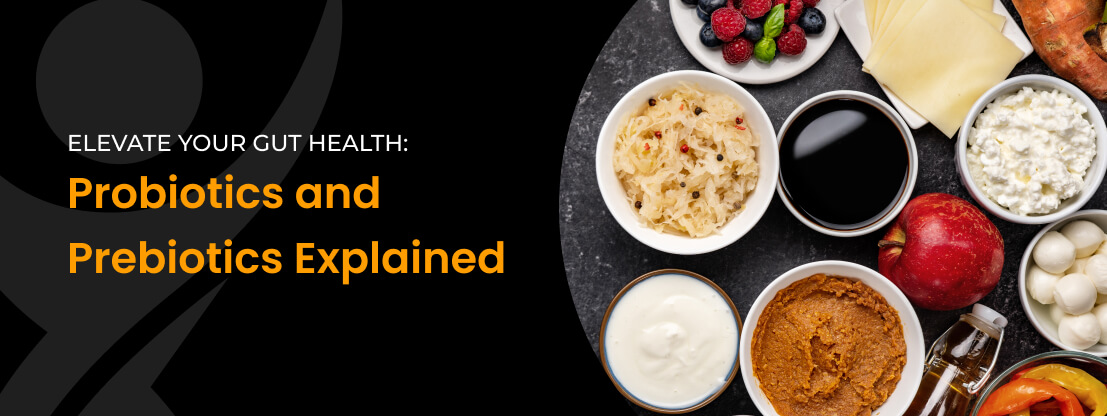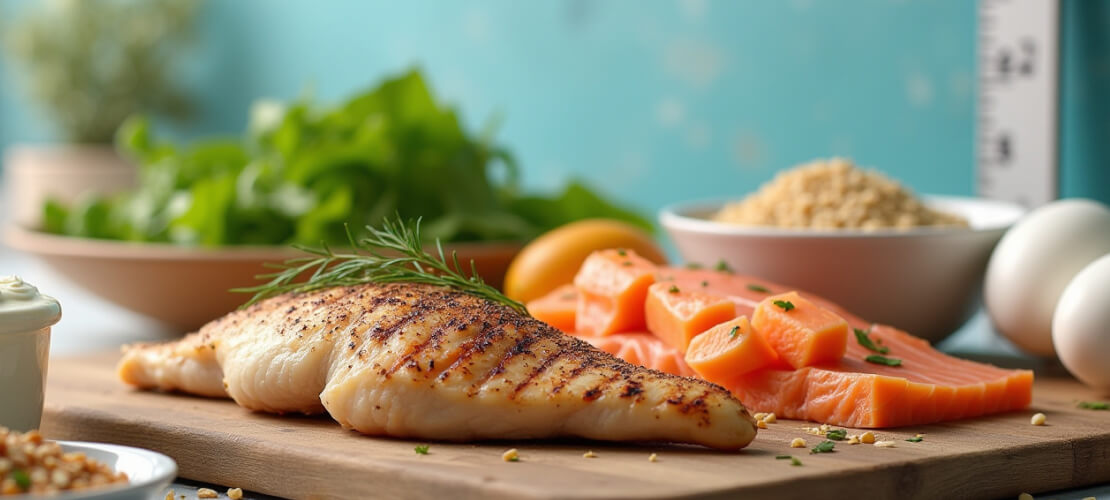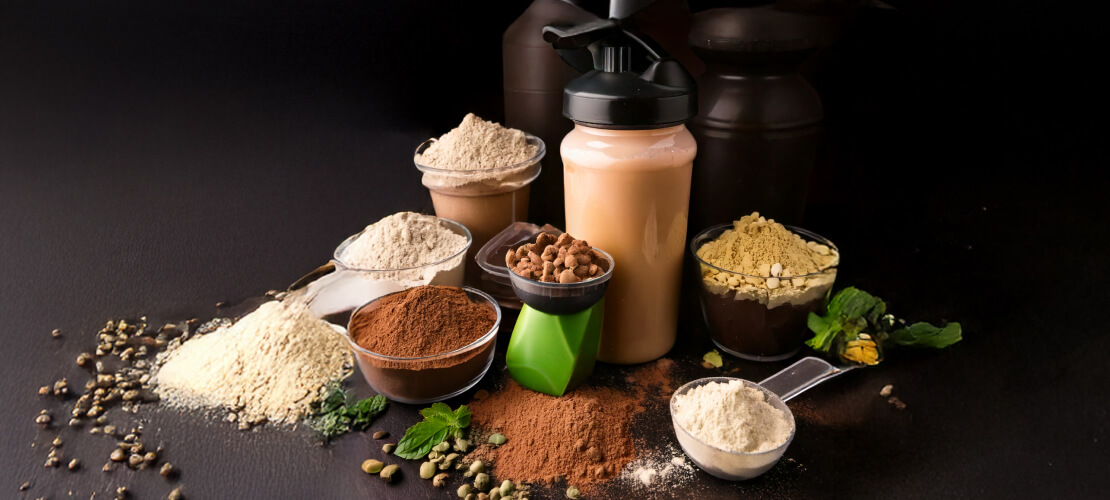Probiotics or Prebiotics?
If gut health were a game of cricket, then probiotics and prebiotics would have been a formidable partnership that scared most diseases away. Both prebiotics and probiotics work synergistically to win this game and support our gut microbiome. These paronyms aren’t just different in meaning; they serve a completely different purpose in maintaining good gut health. Put your reading glasses on, and let’s unravel this mystery once and for all.
What are Prebiotics and Probiotics?
Our gut microbiome plays a pivotal role in holistic health. Research proves that we can manipulate and restore a healthy gut microbiome through a healthy diet. Prebiotics and probiotics are your sure-shot way if you too have a bad gut health.
Exploring Prebiotics
Prebiotics serve as food for the good bacteria in our gut to help them diversify and flourish. They are primarily ingredients mostly like polysaccharides, inulin, resistant starches, and many more medical phrases. Simply put, certain fibers that our body can not digest, reach the colon intact. Our gut bacteria then ferment and feed on them to multiply.
Benefits of Prebiotics
Mainly, prebiotics stimulate the active growth of bacteria like Bifidobacteria and Lactobacilli. Prebiotics support nutrient metabolism and strengthen our immune system. They are also responsible for producing short-chain fatty acids (SCFAs). SCFAs are health-promoting substances that not only aid gut functioning but also reduce potential cancer risks in the body.
Understanding Probiotics
Probiotics are live microorganisms that support the overall health and well-being of the body. The bacteria present in probiotics feed on prebiotics and multiply to restore gut microbiome. Lactobacillus, Bifidobacterium, Saccharomyces, Streptococcus, Enterococcus, Escherichia, and Bacillus are the primary bacteria present in probiotics. These bacteria contain CFU (colony-forming units)
Benefits of Probiotics
Probiotics are beneficial as the bacteria present in them directly impact the gut microbiome. They influence digestive health, immunity, mental health, female health, etc. They are very beneficial for people with IBS, upper respiratory tract infections, cholesterol, etc. The benefits of probiotics depend on the various strains present in them along with dosage, and hence, the effects may vary.
When Are Prebiotics And Probiotics Prescribed?
Individuals suffering from digestive issues or other health issues that affect digestive health need to concentrate on adding more biotics in their diet. Many times when a disease requires the use of antibiotics, doctors recommend the use of prebiotics to aid in better digestion and also prevent the side-effects of antibiotics.
Some individuals also intake probiotics daily for a better overall health and functioning of the digestive system. In general, we can include them by following a healthy diet without depending on man-made supplements.
What Food Sources Are Rich in Probiotics and Prebiotics?
Hold your thoughts before embarking on the shopping spree for prebiotics and probiotic supplements. The best way to include prebiotics and probiotics in your diet is through natural resources. Consuming a balanced diet ensures not just nutrition but also gut health maintenance.
Foods Rich in Prebiotics
Many foods naturally contain prebiotics. Include these foods in your diet for natural sources of prebiotics.
- Legumes
- Berries
- Oats
- Bananas
- Garlic
- Asparagus
- Leeks
- Chicory roots
- Whole grains
- Onions
Incorporate these foods into your diet to boost your gut flora and maintain a healthy gut microbiome.
Foods Rich in Probiotics
Plenty of foods are rich in probiotics and microorganisms that boost gut health. Consume these foods for a natural dose of probiotics
- Yogurt
- Kimchi
- Buttermilk
- Kombucha Tea
- Kefir
- Fermented Foods
- Miso
- Pickles
- Tempeh
Incorporating these probiotic-rich foods into your diet can help support a healthy gut microbiome, aid digestion, and contribute to overall wellness.
Impact of Prebiotics and Probiotics
It is clear that prebiotics and probiotics influence our overall well-being. Some general effects of prebiotics and probiotics on health are
- Nourishes your beneficial gut bacteria
- Improves digestion
- Restore gut microbiome balance
- Boosts Immunity
- Support mental health and well-being
Tips For Maintaining A Healthy Gut
Gut health maintenance requires following a diet and lifestyle that restores our natural gut microbiome. We suggest taking a gut microbiome test, as it provides you with valuable insights on your current gut health. Following the test results you can add and subtract specific foods from your diet depending on your body requirements. In general, including foods mentioned above provide your gut with the required ingredients to boost the beneficial bacteria in your gut. Also consult with your primary doctor incase of any persistent gut issues.
Are Prebiotics and Probiotics Safe For Health?
Prebiotics and Probiotics are not just safe but imperative for a healthy gut.
Taking probiotics in adequate amounts through natural resources in your diet is generally safe to use. In case you have gut health issues, then we recommend speaking with your primary doctor for better advice.
Conclusion
To conclude, we have already established the benefits of various microorganisms in our gut. When consumed together, both display promising health benefits. There is still not enough research to depict the best benefits of including prebiotics and probiotics in your diet. Including various foods rich in other varieties of bacteria is advised. A diverse gut microbiome is a sign of a healthy gut health, and prebiotics and probiotics can help restore your gut flora. Also read on ways to improve your gut health.
Frequently Asked Questions
While generally safe, some individuals may experience mild gastrointestinal symptoms such as bloating, gas, or diarrhea when first starting prebiotics or probiotics. These symptoms are usually temporary and diminish as the gut adjusts.
Yes, a balanced diet rich in fruits, vegetables, whole grains, and fermented foods will provide sufficient prebiotics and probiotics to support gut health. Supplements can be considered for people with specific needs or dietary restrictions.
Yes many gut friendly foods are rich in prebiotics and probiotics, which is why those foods are considered to be gut-friendly.
Yes, prebiotics are necessary for gut health and restoring gut microbiome. They help boost beneficial bacteria in your gut.
Yes, probiotics are good bacteria required for the proper functioning and digestion of food. It helps nourish the body and proper absorption of nutrients in the body.
Generally, consuming a balanced diet can fulfill your body’s requirements for prebiotics and probiotics. Incase of any health issues we advise you to consult with a doctor before taking any supplements.




